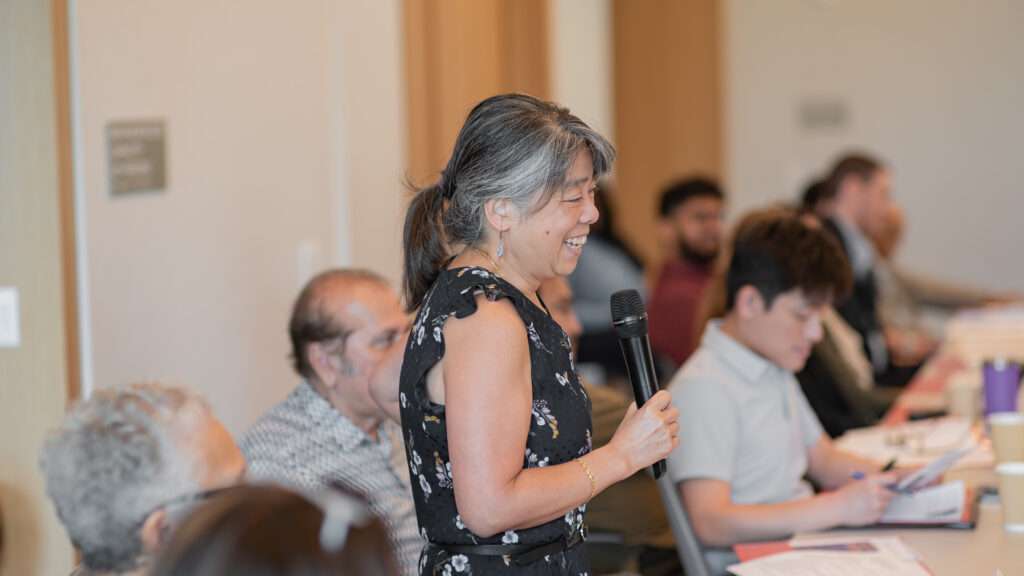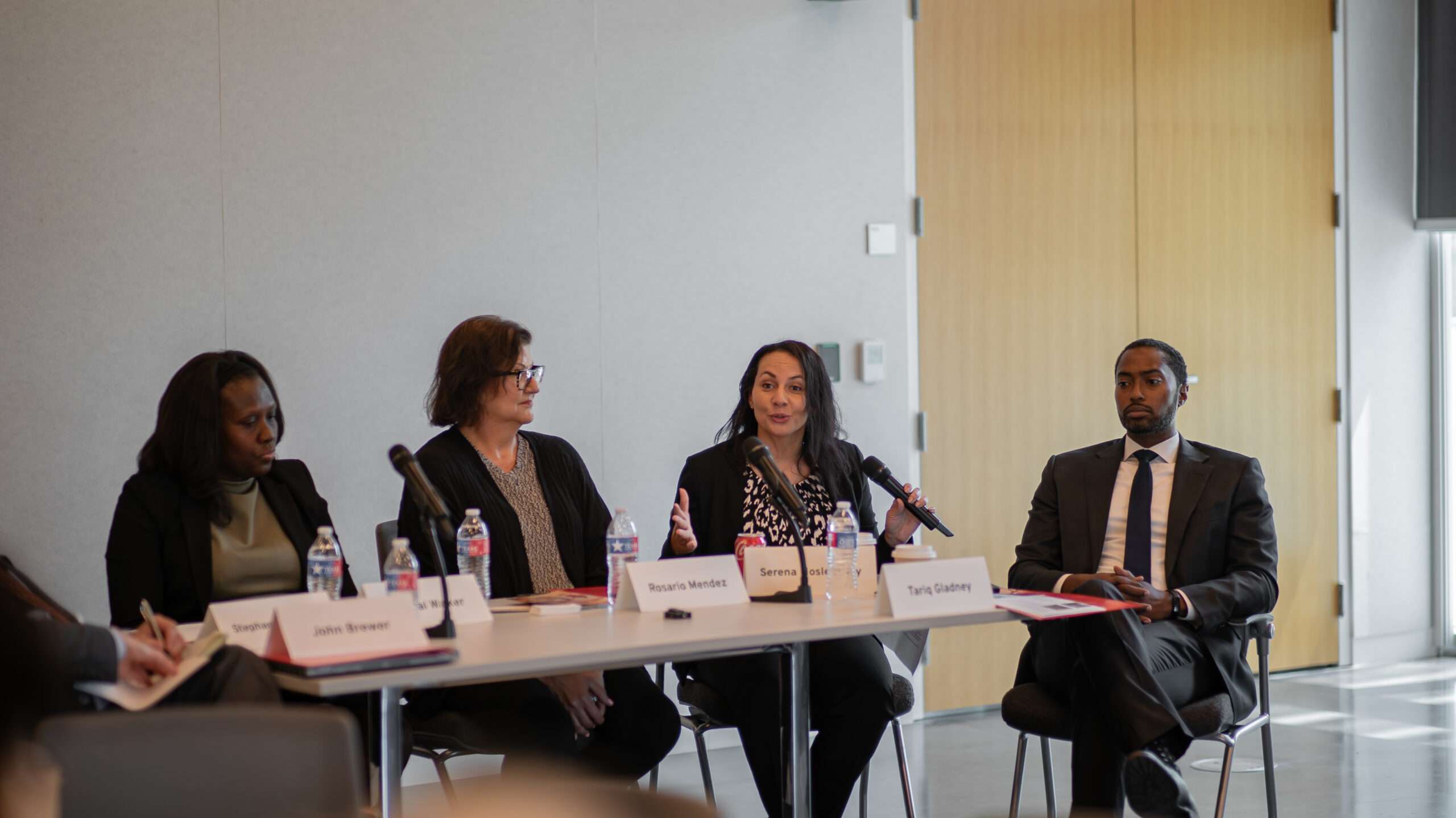HOUSTON — Learning how to spot and avoid scams is crucial in today’s digital age where malicious scammers are actively targeting every community, every day, in various ways. Information is one of the most powerful weapons people must use to protect themselves and their families against this plight.
Recently, Houston Ethnic Media held a briefing for reporters and community influencers on the most up-to-date information about scams targeting immigrants, communities of color, young people, and older adults across Houston.
PANELISTS’ TAKEAWAYS:
- Rosario Mendez, Assistant Director, Division of Consumer & Business Education, FTC Washington office – “Don’t be afraid to talk about scams. Stop, think fraud!”
- Serena Mosley-Day, Attorney, FTC Southwest Regional Office – “An ounce of prevention is worth a pound of cure.”
- Krystal Walker, Executive Assistant US Attorney, Southern District of Texas – “Based off my experience I just want to help spread the word. We can just talk about it and not let the fear or shame of fraud keep us quiet… The fraudsters’ point is to gain your trust and then to take advantage of that and once that crime is committed, they further make you feel stigmatized and embarrassed to even report it.”
- John Brewer, Chief of Economic Crimes Division, Fort Bend District Attorney’s Office – “If you sign it, it better be true because you’re responsible for it. If you can’t read it, don’t sign it. That will apply to a lot of people that maybe don’t speak English.”
- Tariq Gladney, Managing Attorney, Lone Star Legal Aid (Fort Bend) – “We’re in this together. Scams can lead to financial ruin and loss of homes and if you think about the wealth gap and more people falling into poverty, it is something that society as a whole should be concerned about.”
- Stephanie Bauman, Elder Justice Coordinator, United States Attorney’s Office – “I have been the elder justice coordinator in our office for a year, but I’ve handled cases for a number of years and what we tend to focus on when we take cases are the cases that touch victims in small amounts, but aggregate to very large losses. I’ve handled cases where mostly the fraudsters are overseas. The people that are making the phone calls, sending the emails, sending the pop-ups on the computers, those people are overseas. When you realize that something has happened, please report it.”

OTHER GUESTS:
- Zenobia Lai, Executive Director, Houston Immigration Legal Services Collaborative – “You all hear from the news basically every week there’s a new immigration policy. Sometimes in the immigrant community it’s very difficult to really know what is going on. So like last week there’s a new program that the Biden Administration put out there in place for documented spouses of U.S. citizens. What scammers do is say ‘here give me $10,000 and I’m going to apply for you.’ You know in the immigrant community, oftentimes, they don’t know the difference in new programs and they want to be able to apply so that they can protect themselves… So what I would say is that we pride ourselves being the source of accurate and timely information for the community so so it’s important to kind of connect your community with reliable resources.”
- Sheroo Mukhtiar, Executive Director, SERJobs & Financial Empowerment Center – “There are tons of examples of what our clients go through. Underserved, under-resourced communities with people that may have language barriers, that have other challenges that they’re dealing with, sometimes they’re desperate to get whatever resource or whatever help they can get and so they end up being vulnerable providing information that they typically would not.”
- Jennifer Wandrey, Associate State Director of Outreach and Advocacy, AARP – “You do not have to be a member to receive fraud resources. We offer free resources to educate the public.”
- Elizabeth Tran, Legal Services Director, Houston Volunteer Lawyers – “We’re talking about getting help talking to somebody. A lot people in our community are afraid to talk and they don’t want to tell other people about their woes just because they’re like ‘we’ve talked about it too many times.’ They’re scared they don’t want to be embarrassed, but a lot of times too is that they just don’t know if whether or not they have a legal issue. They know that they’ve been wronged, and they need some help.”
- Connor Evans, Detective, Financial Crimes Unit, Houston Police Department – “What we see so much is check fraud and bank fraud. We see and get a lot of cases on our check frauds and that’s both check forgeries, check counterfeiting and then also identity theft to create bank accounts in victims’ names. A lot of the sources of those checks come from, unfortunately, US mail. That’s also a big part of what we see in Houston and Harris County is a lot of mail theft, so we work pretty closely with the US Postal Inspector Service on cases together.”
Here are some key tips to help you recognize and steer clear of scams:
1. Be Skeptical of Unsolicited Contacts
– Emails: Be cautious of emails from unknown senders, especially those requesting personal information or urgent action.
– Phone Calls: If you receive a call from someone claiming to be from a bank or government agency asking for sensitive information, hang up and verify their identity through official channels.
2. Verify Sources
– Website URLs: Check the URL of websites you visit. Scammers often create websites with URLs like legitimate sites.
– Official Channels: Verify communications through official websites or contact numbers provided independently (not via the contact information in the suspicious message).
3. Look for Red Flags
– Grammatical Errors and Poor Formatting: Legitimate organizations usually have professional communication standards.
– Unrealistic Promises: Offers that seem too good to be true often are. Exercise caution with unexpected lottery wins, inheritance claims, or promises of large sums of money.
4. Protect Personal Information
– Never Share Confidential Information: Avoid sharing personal or financial details unless you are certain about the recipient’s identity and their need for the information.
5. Research and Verify
– Search Online: Research the company or individual making the offer. Look for reviews, complaints, or any information that verifies their legitimacy.
– Check Scam Databases: Websites like the Better Business Bureau (BBB) or the Federal Trade Commission (FTC) may have reports or warnings about known scams. Visit ftc.gov/consumeralerts
6. Use Secure Payment Methods
– Credit Cards: When making payments online, use credit cards that offer fraud protection rather than wire transfers or prepaid cards.
– Secure Websites: Ensure the website is secure (look for “https://” and a padlock symbol in the address bar) before entering payment information.
7. Trust Your Instincts
-Listen to Doubts: If something feels off or too good to be true, trust your instincts and investigate further before proceeding.
8. Educate Yourself and Others
– Stay Informed: Keep updated on common scams and techniques used by scammers to stay vigilant.
– Share Knowledge: Educate friends and family, particularly those less familiar with online risks, about how to spot scams and protect themselves.
“My main take away or the thing I want everyone to take away from this presentation is verify, verify, verify! If you care about your money – verify that you’re sending it to the right place and that you’re sending it to the right person. Don’t be afraid to ask. I want people to just be diligent. Make sure that the information they’ve received is what it purports to be, and if you care about your money, just take that extra step, spread the word,” said Krystal Walker, Executive Assistant US Attorney, Southern District of Texas.
By remaining vigilant and applying these principles, you can significantly reduce the risk of falling victim to scams. Always prioritize caution and verification when dealing with unfamiliar contacts or offers that seem too good to be true, especially when they involve personal information or financial transactions. Stay aware and stay safe! ~Kim Floyd








